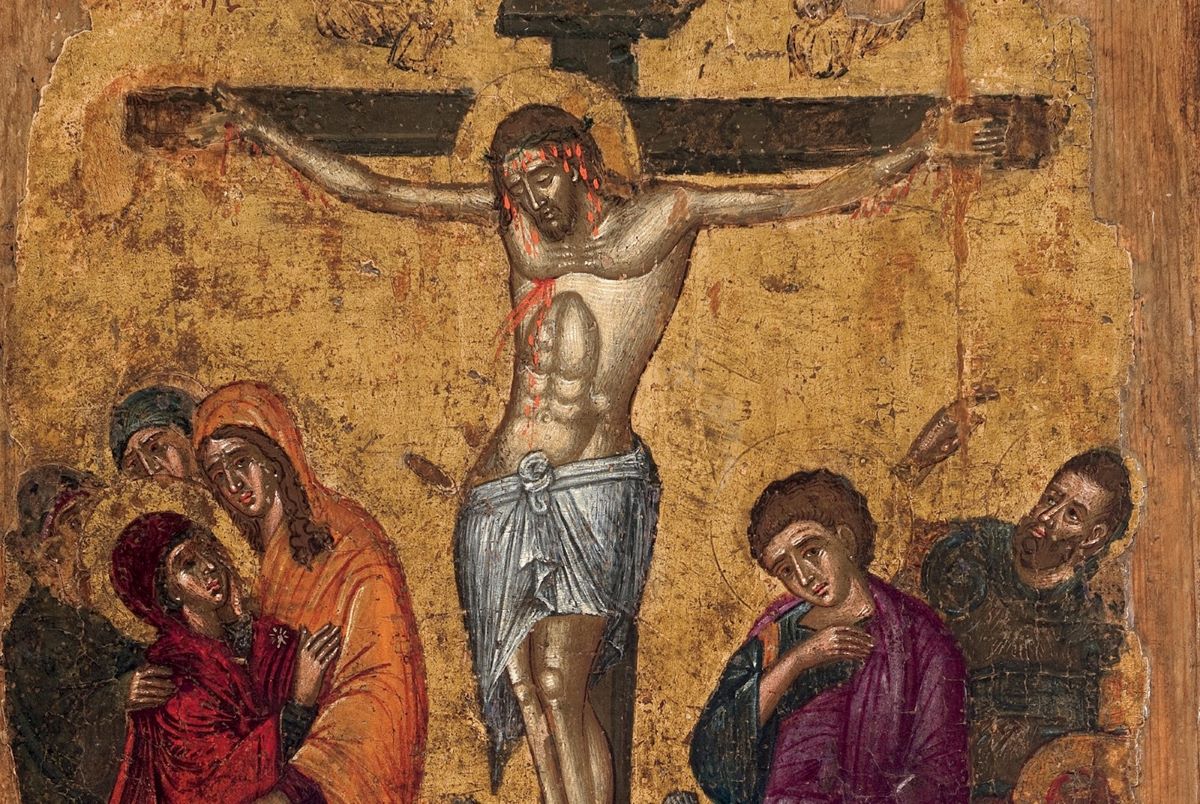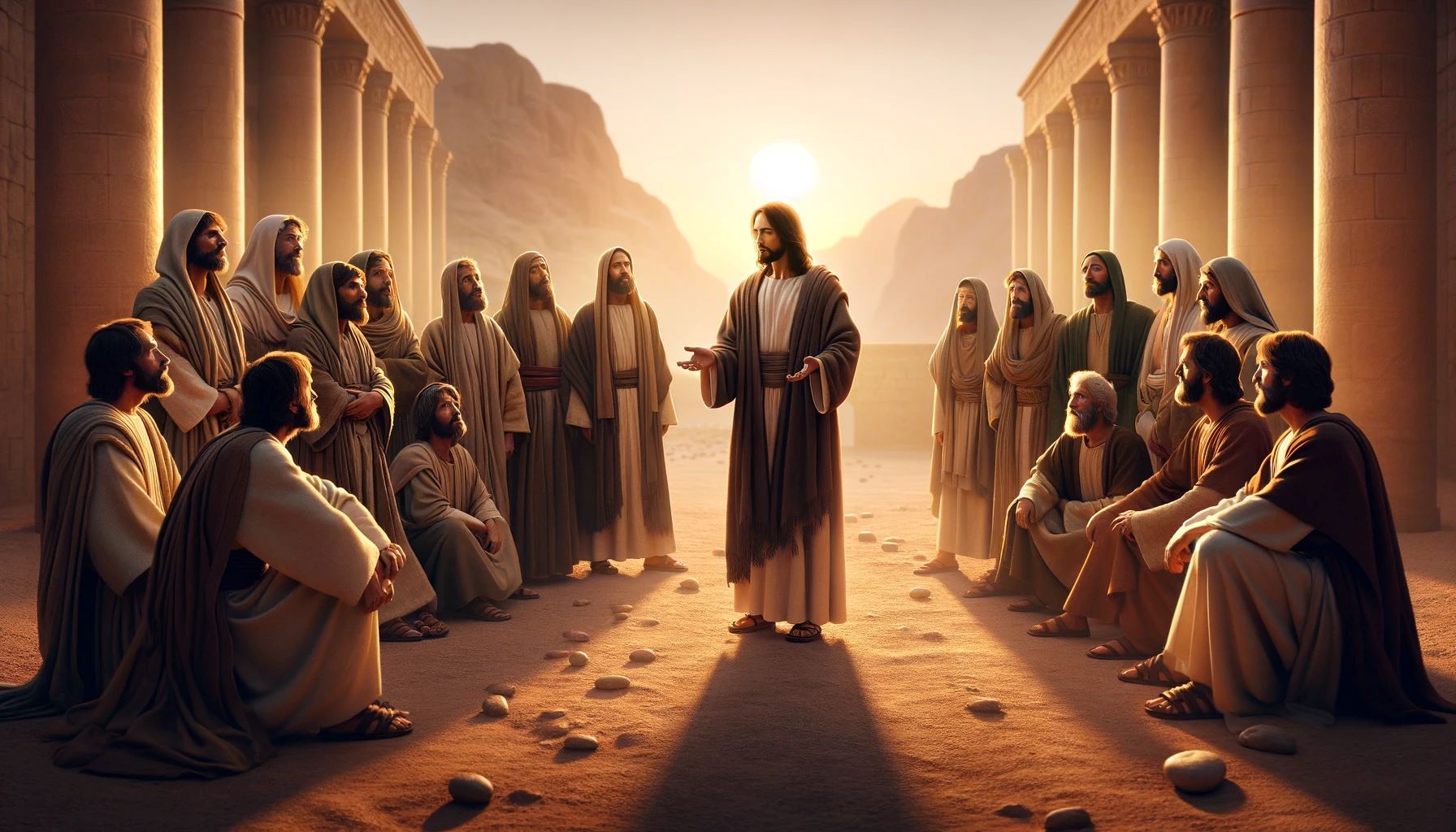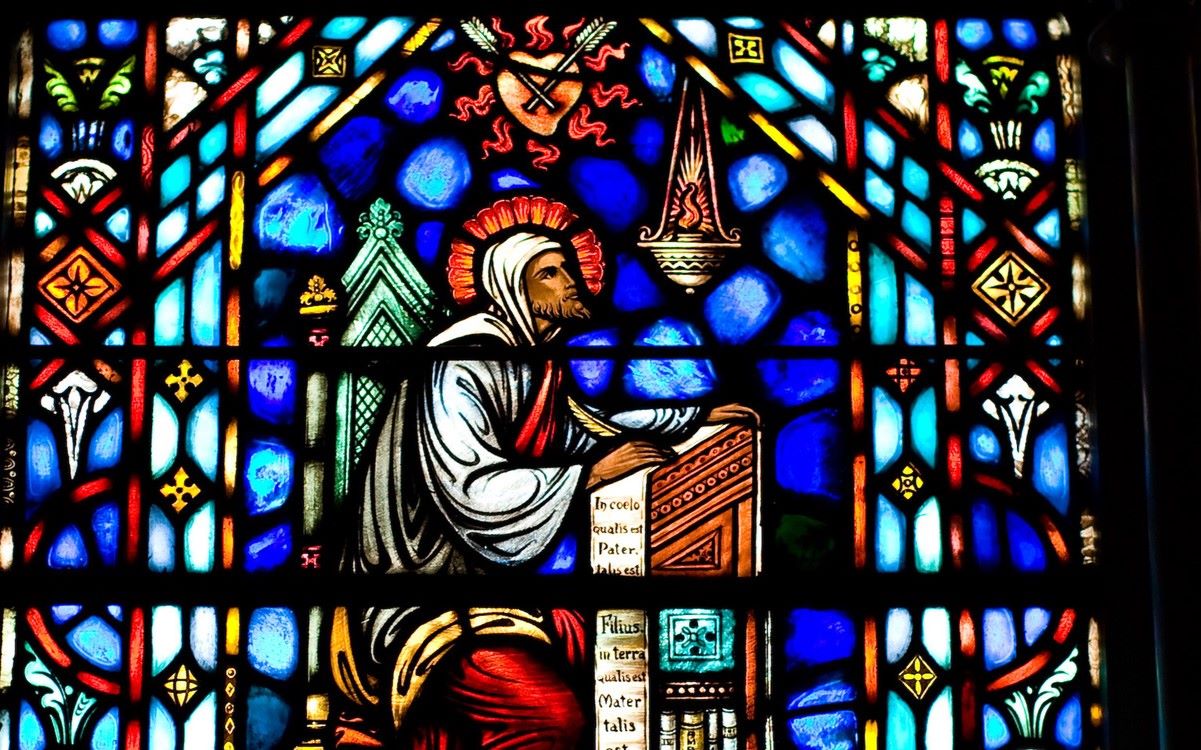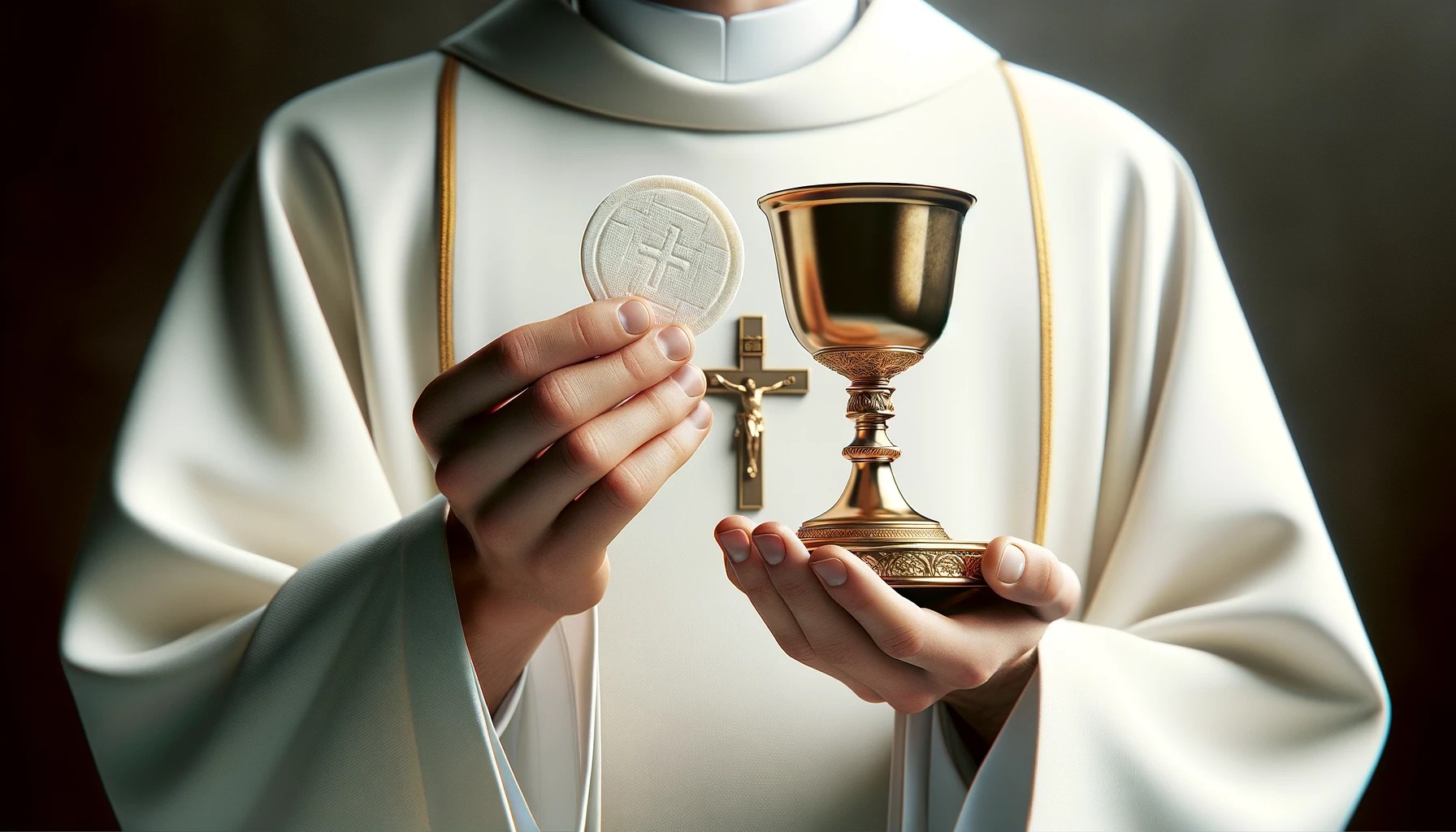Home>Theology and Spirituality>Why Is Holy Communion Important
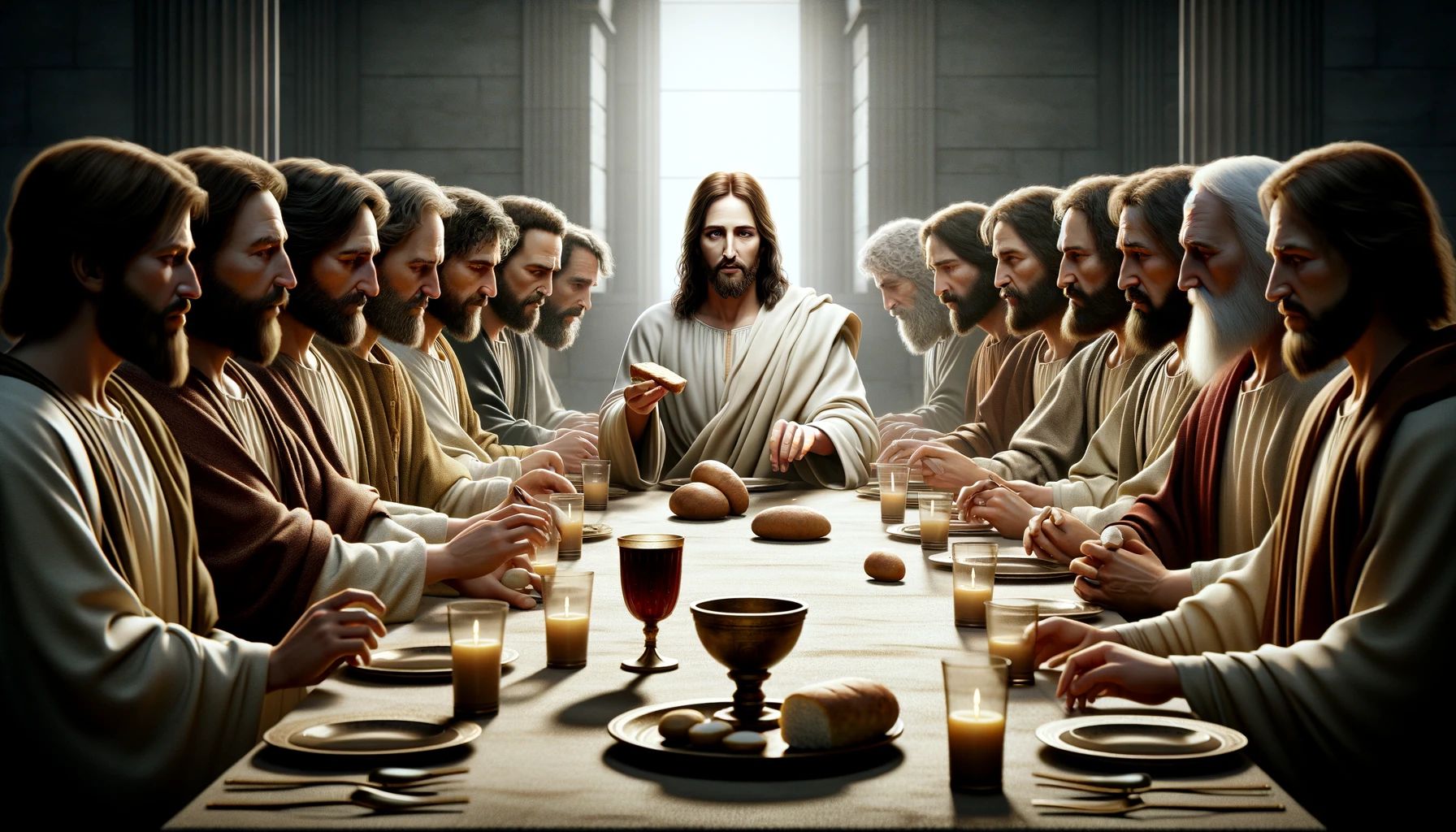

Theology and Spirituality
Why Is Holy Communion Important
Published: February 19, 2024
Ericka Andersen, an editor at Christian.net, expertly merges digital strategy with content creation, focusing on faith and societal issues. Her communication skills enhance the platform's engaging narratives, fostering meaningful dialogue on belief's impact on society.
Discover the significance of Holy Communion in theology and spirituality. Learn why it holds a crucial place in Christian faith and practice.
(Many of the links in this article redirect to a specific reviewed product. Your purchase of these products through affiliate links helps to generate commission for Christian.net, at no extra cost. Learn more)
Table of Contents
Introduction
Holy Communion, also known as the Eucharist or the Lord's Supper, holds a central place in the Christian faith and worship. It is a sacred ritual that commemorates the Last Supper, a significant event in the life of Jesus Christ. This timeless practice has been observed by Christians for centuries, serving as a profound symbol of spiritual nourishment and unity within the Christian community.
The act of Holy Communion involves the consumption of bread and wine, symbolizing the body and blood of Jesus Christ, respectively. This symbolic act is deeply rooted in the teachings of Jesus, as recorded in the New Testament of the Bible. The significance of Holy Communion extends beyond its historical origins, encompassing profound spiritual and communal implications for believers.
As we delve into the multifaceted dimensions of Holy Communion, it becomes evident that this sacred practice is not merely a ritualistic observance but a deeply meaningful and transformative experience for Christians worldwide. From its historical origins to its spiritual symbolism and personal impact, Holy Communion embodies the essence of Christian faith and devotion. Let us embark on a journey to explore the rich tapestry of Holy Communion and unravel its profound significance in the lives of believers.
Read more: Why Do We Receive The Holy Communion
The Origins of Holy Communion
The origins of Holy Communion can be traced back to the Last Supper, a pivotal event in the life of Jesus Christ. According to the Gospels of Matthew, Mark, and Luke in the New Testament, the Last Supper took place during the Passover feast, a significant Jewish celebration. It was during this communal meal that Jesus shared bread and wine with his disciples, imparting profound spiritual significance to these elements.
As the evening unfolded, Jesus took bread, blessed it, and broke it, giving it to his disciples, saying, "Take, eat; this is my body." He then took the cup of wine, gave thanks, and offered it to his disciples, declaring, "Drink from it, all of you; for this is my blood of the covenant, which is poured out for many for the forgiveness of sins." These words, laden with symbolic meaning, laid the foundation for the ritual of Holy Communion.
The act of sharing bread and wine during the Last Supper symbolized the sacrificial offering of Jesus' body and blood for the redemption of humanity. It signified a new covenant between God and humanity, emphasizing the spiritual nourishment and forgiveness of sins made possible through Jesus' ultimate sacrifice on the cross.
Following the Last Supper, Jesus instructed his disciples to continue this practice in remembrance of him. This directive solidified the significance of Holy Communion as a sacred and enduring tradition within the Christian faith. The early Christian communities faithfully observed this ritual, recognizing its profound connection to the life, death, and resurrection of Jesus Christ.
The origins of Holy Communion, rooted in the Last Supper, reflect the deep spiritual resonance of this sacred practice. It serves as a poignant reminder of Jesus' selfless love and the redemptive power of his sacrifice. The enduring legacy of the Last Supper continues to reverberate through the centuries, shaping the spiritual identity of Christian worship and fostering a profound sense of unity and communion among believers worldwide.
The Symbolism of Holy Communion
The act of Holy Communion is steeped in profound symbolism, each element carrying rich spiritual significance that resonates deeply within the Christian tradition. The bread and wine, central to the ritual, serve as potent symbols of the body and blood of Jesus Christ, embodying the essence of his sacrificial love and redemptive mission.
The bread, when blessed and broken during the Communion service, represents the body of Jesus Christ, offered as a selfless and sustaining source of spiritual nourishment for believers. This act of breaking the bread mirrors the brokenness of Jesus' body on the cross, underscoring the depth of his suffering and the extent of his love for humanity. As Christians partake of the bread, they symbolically unite with Christ, acknowledging their dependence on him for spiritual sustenance and strength.
Similarly, the wine, upon being blessed and shared, symbolizes the blood of Jesus Christ, shed for the forgiveness of sins and the establishment of a new covenant between God and humanity. The act of drinking from the cup signifies a profound participation in the redemptive work of Christ, as believers embrace the transformative power of his sacrifice and the promise of eternal life. The symbolism of the wine underscores the spiritual cleansing and renewal made possible through the atoning blood of Jesus, fostering a deep sense of gratitude and reverence among the faithful.
Furthermore, the communal aspect of partaking in the bread and wine reflects the unity and fellowship of the Christian community. As individuals come together to share in this sacred meal, they symbolize their interconnectedness as members of the body of Christ, transcending differences and embracing a shared identity as recipients of God's grace and love. This communal symbolism reinforces the notion of spiritual kinship and mutual support within the Christian faith, emphasizing the call to love and serve one another in the spirit of Christ.
In essence, the symbolism of Holy Communion encapsulates the core tenets of Christian belief, serving as a tangible expression of Jesus' redemptive work, the spiritual nourishment of believers, and the unity of the Christian community. This profound symbolism infuses the ritual of Holy Communion with deep spiritual resonance, inviting participants to engage in a transformative encounter with the living presence of Christ and the enduring promise of salvation.
The Spiritual Significance of Holy Communion
The spiritual significance of Holy Communion transcends the realm of mere symbolism, encompassing profound theological and existential implications for believers. At its core, Holy Communion serves as a sacred conduit through which Christians encounter the living presence of Jesus Christ and partake in the spiritual nourishment and renewal offered through his redemptive sacrifice.
Central to the spiritual significance of Holy Communion is the concept of spiritual sustenance. As participants partake of the consecrated elements, they engage in a deeply intimate and transformative encounter with the person of Jesus Christ. The act of consuming the bread and wine symbolizes a spiritual feeding, wherein believers receive the sustaining grace and presence of Christ into their lives. This spiritual nourishment serves to fortify and revitalize their faith, fostering a profound sense of spiritual empowerment and renewal.
Moreover, Holy Communion embodies the theological concept of "communion" itself, signifying a profound union and fellowship with Christ and fellow believers. Through this sacred ritual, Christians enter into a mystical communion with the living Christ, experiencing a profound sense of closeness and intimacy with the Savior. This communion transcends the physical realm, encompassing a spiritual union that unites believers with the redemptive work and presence of Christ, fostering a deep sense of spiritual intimacy and solidarity within the Christian community.
Furthermore, Holy Communion serves as a poignant reminder of the atoning sacrifice of Jesus Christ and the redemptive implications of his death and resurrection. As participants partake of the bread and wine, they are invited to reflect on the profound significance of Christ's sacrificial offering, acknowledging the transformative power of his blood shed for the forgiveness of sins. This contemplation engenders a deep sense of gratitude, humility, and reverence, as believers embrace the profound implications of Christ's redemptive work in their lives.
In essence, the spiritual significance of Holy Communion extends far beyond a symbolic reenactment of the Last Supper; it embodies a transformative encounter with the living Christ, a communal expression of spiritual unity, and a profound contemplation of Christ's redemptive sacrifice. This sacred ritual serves as a wellspring of spiritual nourishment, communion, and contemplation, inviting believers into a deeper and more profound experience of their faith and relationship with Jesus Christ.
The Importance of Holy Communion in Christian Worship
Holy Communion holds profound significance in Christian worship, serving as a central and sacred ritual that embodies the essence of Christian faith and devotion. Its importance transcends mere symbolism, encompassing spiritual, communal, and theological dimensions that enrich the worship experience for believers.
At the heart of its significance is the commemoration of Jesus Christ's sacrificial offering on the cross. During the Communion service, believers partake of the bread and wine, symbolizing the body and blood of Christ, in remembrance of his redemptive work. This act of remembrance fosters a deep sense of gratitude and reverence, as Christians reflect on the profound implications of Christ's sacrifice for the forgiveness of sins and the establishment of a new covenant with God.
Furthermore, Holy Communion serves as a tangible expression of spiritual nourishment and renewal within the worship context. As believers partake of the consecrated elements, they engage in a transformative encounter with the living presence of Christ, receiving spiritual sustenance that fortifies and revitalizes their faith. This spiritual nourishment fosters a deep sense of intimacy and communion with Christ, enriching the worship experience and fostering a profound sense of spiritual empowerment and renewal.
Moreover, the communal aspect of Holy Communion underscores its importance in fostering unity and fellowship within the Christian community. As believers gather to partake in this sacred meal, they symbolize their interconnectedness as members of the body of Christ, transcending differences and embracing a shared identity as recipients of God's grace and love. This communal expression of unity and fellowship enriches the worship experience, fostering a sense of spiritual kinship and mutual support among believers.
In the broader context of Christian worship, Holy Communion serves as a focal point for believers to engage in a tangible and transformative encounter with the redemptive work of Christ. It provides a sacred space for reflection, contemplation, and spiritual communion, inviting believers into a deeper and more profound experience of their faith. As such, the importance of Holy Communion in Christian worship is underscored by its capacity to enrich the worship experience, foster spiritual nourishment and renewal, and cultivate a deep sense of unity and communion within the Christian community.
Read more: Why Hymns Are Important
The Role of Holy Communion in the Christian Community
Holy Communion plays a pivotal role in shaping the identity and fostering the spiritual unity of the Christian community. At its core, Holy Communion serves as a sacred and communal expression of the shared faith, fellowship, and spiritual kinship among believers. This sacred ritual transcends individual observance, serving as a unifying force that binds the community together in a profound and transformative manner.
One of the central roles of Holy Communion in the Christian community is its capacity to foster a deep sense of spiritual unity and fellowship. As believers gather to partake in this sacred meal, they symbolize their interconnectedness as members of the body of Christ, transcending differences and embracing a shared identity as recipients of God's grace and love. This communal expression of unity and fellowship serves to strengthen the bonds of the Christian community, fostering a sense of spiritual kinship and mutual support among believers.
Furthermore, Holy Communion serves as a tangible expression of the communal participation in the redemptive work of Christ. As believers partake of the consecrated elements, they engage in a collective remembrance of Jesus Christ's sacrificial offering on the cross, acknowledging the transformative power of his blood shed for the forgiveness of sins. This collective remembrance fosters a deep sense of gratitude, humility, and reverence, as the Christian community embraces the profound implications of Christ's redemptive work in their lives.
In addition, the communal aspect of Holy Communion underscores its role in fostering a spirit of reconciliation and unity within the Christian community. As believers come together to partake in this sacred ritual, they are called to reflect on their relationships with one another and with God, seeking reconciliation and unity in the spirit of Christ's love and sacrifice. This communal reflection and reconciliation serve to strengthen the fabric of the Christian community, fostering a spirit of harmony, forgiveness, and mutual support among believers.
In essence, the role of Holy Communion in the Christian community is multifaceted, encompassing the fostering of spiritual unity, the collective participation in the redemptive work of Christ, and the promotion of reconciliation and unity among believers. This sacred ritual serves as a unifying force that enriches the spiritual tapestry of the Christian community, fostering a deep sense of fellowship, communion, and mutual support among believers as they journey together in faith.
The Personal Impact of Holy Communion
The personal impact of Holy Communion extends far beyond the confines of ritual observance, permeating the hearts and lives of individual believers with profound spiritual significance. As participants partake of the consecrated elements, they embark on a deeply personal and transformative journey, encountering the living presence of Jesus Christ in a profoundly intimate manner.
At the heart of the personal impact of Holy Communion lies the experience of spiritual nourishment and renewal. For many believers, the act of consuming the bread and wine represents a sacred encounter with the sustaining grace and presence of Christ. This spiritual nourishment serves to fortify and revitalize their faith, providing a source of strength and sustenance amidst life's challenges and uncertainties. The personal impact of Holy Communion is often characterized by a deep sense of spiritual empowerment and renewal, as individuals find solace and inspiration in the transformative encounter with the living Christ.
Moreover, Holy Communion holds a deeply personal significance as a moment of communion with Christ. As believers partake of the consecrated elements, they enter into a profound union with the Savior, experiencing a sense of closeness and intimacy that transcends the physical realm. This personal communion with Christ fosters a deep sense of spiritual intimacy and solidarity, providing individuals with a profound reassurance of God's abiding presence and love in their lives.
Furthermore, the personal impact of Holy Communion is marked by a sense of spiritual cleansing and renewal. As participants reflect on the redemptive sacrifice of Jesus Christ, they are invited to contemplate the transformative power of his atoning blood and the promise of forgiveness and renewal. This contemplation engenders a deep sense of gratitude, humility, and reverence, as individuals embrace the profound implications of Christ's redemptive work in their lives, finding comfort and restoration in the assurance of God's unending grace and mercy.
In essence, the personal impact of Holy Communion is characterized by a profound encounter with the living presence of Jesus Christ, spiritual nourishment and renewal, communion with the Savior, and a deep sense of spiritual cleansing and renewal. This sacred ritual holds a deeply personal significance for believers, offering a transformative experience that enriches their faith, fosters spiritual intimacy, and provides a source of solace and renewal in their spiritual journey.
Conclusion
In conclusion, Holy Communion stands as a timeless and sacred practice that embodies the essence of Christian faith, devotion, and communal unity. From its origins in the Last Supper to its profound symbolism, spiritual significance, and impact on the Christian community and individual believers, Holy Communion serves as a transformative and unifying force within the tapestry of Christian worship and spirituality.
The origins of Holy Communion, rooted in the Last Supper, reflect the deep spiritual resonance of this sacred practice. It serves as a poignant reminder of Jesus' selfless love and the redemptive power of his sacrifice, shaping the spiritual identity of Christian worship and fostering a profound sense of unity and communion among believers worldwide.
The symbolism of Holy Communion encapsulates the core tenets of Christian belief, serving as a tangible expression of Jesus' redemptive work, the spiritual nourishment of believers, and the unity of the Christian community. This profound symbolism infuses the ritual of Holy Communion with deep spiritual resonance, inviting participants to engage in a transformative encounter with the living presence of Christ and the enduring promise of salvation.
The spiritual significance of Holy Communion transcends the realm of mere symbolism, encompassing profound theological and existential implications for believers. At its core, Holy Communion serves as a sacred conduit through which Christians encounter the living presence of Jesus Christ and partake in the spiritual nourishment and renewal offered through his redemptive sacrifice.
In the broader context of Christian worship, Holy Communion serves as a focal point for believers to engage in a tangible and transformative encounter with the redemptive work of Christ. It provides a sacred space for reflection, contemplation, and spiritual communion, inviting believers into a deeper and more profound experience of their faith and relationship with Jesus Christ.
Furthermore, the role of Holy Communion in the Christian community is multifaceted, encompassing the fostering of spiritual unity, the collective participation in the redemptive work of Christ, and the promotion of reconciliation and unity among believers. This sacred ritual serves as a unifying force that enriches the spiritual tapestry of the Christian community, fostering a deep sense of fellowship, communion, and mutual support among believers as they journey together in faith.
In essence, Holy Communion remains a profound and transformative practice that continues to shape the spiritual landscape of the Christian faith. Its enduring significance as a source of spiritual nourishment, communal unity, and personal transformation underscores its timeless relevance in the lives of believers, serving as a sacred testament to the enduring love and redemptive work of Jesus Christ.





